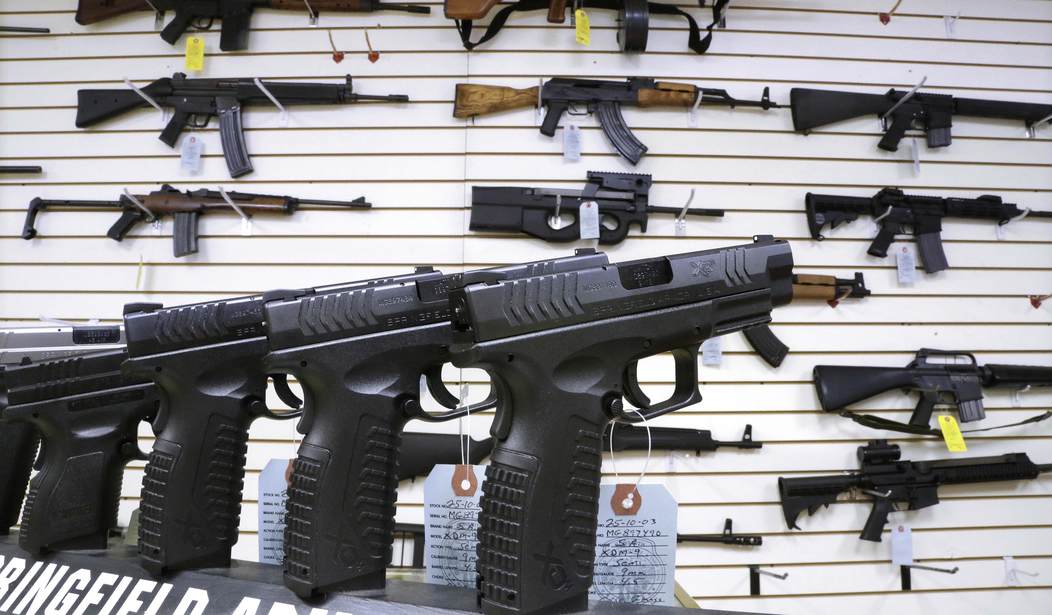The gun wasn’t always political.
Once upon a time, a gun was simply a thing many Americans had as a matter of course. Some had them for hunting or protecting livestock from predators while others had them for self-defense.
Then, things changed.
Over at the Washington Post, their book section took a look at one called “Gun Country,” and while I haven’t read it, I kind of feel obligated to talk about what we do know about it, mostly through the WaPo writeup.
In his crisply written and incisive new book, “Gun Country: Gun Capitalism, Culture, and Control in Cold War America,” historian Andrew C. McKevitt chronicles the transformation of guns from tangible weapons to ideological ammunition. Sharp, fascinating, devastating, exhaustively researched and often wryly funny, this indispensable book — one of the best works of nonfiction this year — details how America came to be not just a gun country but the gun country, home to “nearly half of all civilian-owned firearms in the world” and “more than twice as many guns per person” as any other nation. It begins with a crucial yet neglected premise: Guns are not abstractions but products.
If we have “struggled to see guns in the context of consumer capitalism,” McKevitt writes, it is because “they are manly, and consumerism has often been coded as women’s activity.” The traditional picture dictates that “men produce, women consume.” Guns, the implements of a certain kind of bellicose masculinity, have come to seem less like frivolous indulgences and more like the props of protectors and providers. Their champions present them as “magical totems to protect oneself and one’s community from various forms of evil,” as McKevitt potently puts it, while their opponents too often regard them as symptoms of a spiritual sickness. But the more than 400 million guns in America are a material fact, and all too often a bloody one. “Gun Country” treats them accordingly.
The thing is, no one thinks of them as symbols in and of themselves. We know they’re basically consumer goods that people buy for various reasons.
But we can’t ignore the fact that yes, firearms are also political symbols.
It seems the writeup gets that, and gets into how it happened. It doesn’t, however, really touch on why it happened, and that’s sort of important.
After all, things like taking a product and it becoming a symbol doesn’t just happen. There’s always a reason for that, and the reason here is because people started trying to take it away.
See, before then, things might have been restricted via laws like the National Firearms Act in 1934, but that wasn’t an outright ban. You could still get a machine gun and get one affordably. They were restricted and registered, but most folks could still get their hands on it.
After World War II, you started getting a lot of surplus firearms, which allowed a lot of people to buy firearms affordably and that always makes some people uncomfortable.
The Gun Control Act of 1968, the first real federal guncontrol legislation following the war, was just the start. Anti-Second Amendment efforts started before the passage but continued well on into today.
Because of that, the very thing some wanted to restrict–and in most cases, ban–became a symbol because the Constitution doesn’t stand for such things.
Our firearms only became symbols because someone didn’t want us having them. That’s plain and simple.
Yet that gets left out of the discussion. There’s no cause, only effect, and that effect is problematic because the cause is supposedly righteous.
By ignoring that this is a response to an infringement on our basic civil liberties, however, they’re only making it clear that they don’t care about why we oppose their anti-Second Amendment efforts, only that we’re somehow in the wrong for opposing them.








